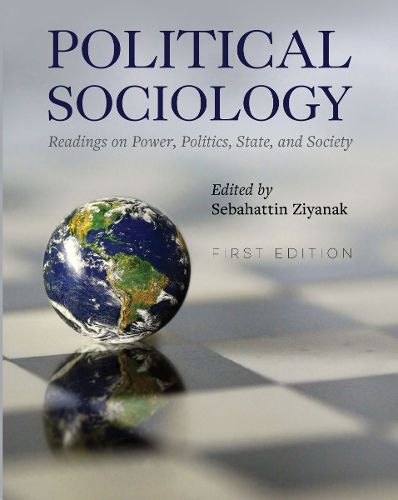Readings Newsletter
Become a Readings Member to make your shopping experience even easier.
Sign in or sign up for free!
You’re not far away from qualifying for FREE standard shipping within Australia
You’ve qualified for FREE standard shipping within Australia
The cart is loading…






Through a collection of carefully selected articles, Political Sociology: Readings on Power, Politics, State, and Society helps students analyze and understand events in the political and social world through the lens of power structures and the distribution of power in society.
Chapter 1 examines the components of a strong civic culture. Chapter 2 discusses the processes of elite formation in major industrialized countries like the United States, Germany, France, Britain, and Japan. Chapter 3 examines whether presidents are held responsible for the mistakes of their agencies and what the media’s role is in shaping that responsibility. In Chapter 4, readers learn about the relations between states and women from the sociological perspectives of democracy and development. Additional chapters address racial politics in the Missouri Bootheel region; how big technology can serve as a symbol of state power, wealth, and political authority; and the concept of false consciousness and its impact on the lives of individuals. The final chapter discusses the history of voter inequality and voter suppression.
Thoroughly modern in approach, Political Sociology is an exemplary resource for courses in the social sciences.
$9.00 standard shipping within Australia
FREE standard shipping within Australia for orders over $100.00
Express & International shipping calculated at checkout
Through a collection of carefully selected articles, Political Sociology: Readings on Power, Politics, State, and Society helps students analyze and understand events in the political and social world through the lens of power structures and the distribution of power in society.
Chapter 1 examines the components of a strong civic culture. Chapter 2 discusses the processes of elite formation in major industrialized countries like the United States, Germany, France, Britain, and Japan. Chapter 3 examines whether presidents are held responsible for the mistakes of their agencies and what the media’s role is in shaping that responsibility. In Chapter 4, readers learn about the relations between states and women from the sociological perspectives of democracy and development. Additional chapters address racial politics in the Missouri Bootheel region; how big technology can serve as a symbol of state power, wealth, and political authority; and the concept of false consciousness and its impact on the lives of individuals. The final chapter discusses the history of voter inequality and voter suppression.
Thoroughly modern in approach, Political Sociology is an exemplary resource for courses in the social sciences.